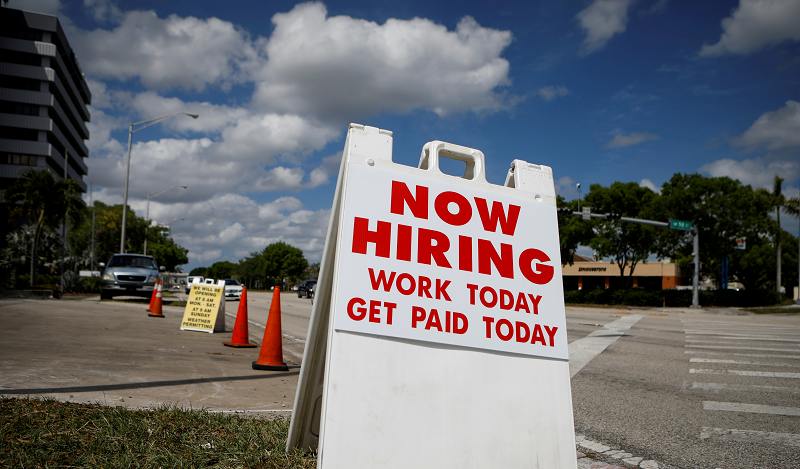
February 24, 2025
A Glut of MBAs?
It’s all about the skills, not the credentials. You know the labor market times are changing when Harvard MBAs start showing up in the unemployment stories. According to a recent Wall Street Journal article, 23 percent of recent Harvard Business School grads were still looking for work three months after graduation. In 2022, that figure was only 10 percent….

February 24, 2025
AI and American Dynamism
Last year, I published a report, The Age of Uncertainty, on the challenges in understanding and estimating the job and skill impacts of artificial intelligence. One of the big problems was how quickly expert estimates become outdated, not due to any fault on the part of the experts, but because of how rapidly AI is evolving….

February 11, 2025
AI and the Future of Work Looks Bright
One of the hottest guessing games in workforce development is figuring out how generative artificial intelligence will affect jobs and how to prepare students and workers for an AI-infused economy. The future of work looks bright, but the full potential of AI to increase productivity and raise wages and incomes will only be realized if…

January 7, 2025
Ozempic and Your Community
As holiday treats give way to New Year’s Resolutions, the names of GLP-1 weight-loss drugs like Ozempic and Wegovy will be on millions of lips this January—in addition to any leftover fruitcake, eggnog, cookies, and latkes. But the benefits of these drugs aren’t limited to what they can do for an individual’s health. Recent analysis…

January 3, 2025
AI and People: Better Together
The rapid advancement of artificial intelligence (AI) has sparked widespread debate about its potential to displace highly-skilled workers. Recent research by Emilio Colombo and his colleagues, Towards the Terminator Economy, offers a more encouraging view. The authors’ findings suggest that among more highly skilled workers, generative AI may actually enhance productivity, increase wages, and boost employment….

January 2, 2025
AI Will Have a Major Impact on Labor Markets. Here’s How the US Can Prepare
The nation can do better at forecasting AI-driven job and skill changes, including with a data-focused nonprofit that examines the technology’s impact. Markets are the killer app for efficiently organizing unfathomably complex human activities to deliver innovation and prosperity. They can also shift suddenly, creating winners and losers, even as broad measures of economic health…
December 12, 2024
Senate Special Committee on Aging Hearing on Empowering People with Disabilities to Live, Work, Learn, and Thrive
Introduction: Chairman Casey, Ranking Member Braun and members of the committee, thank you for theopportunity to testify on the critical issues facing aging and disabled members of the Americanworkforce. I’d like to frame my remarks on this topic in two different but interrelated dimensionsof concern: the practical demands of the American economy and the moral…

November 27, 2024
Finally, a Win for Working Men
Since the 1970s, working men, particularly those without college degrees, have experienced lower employment rates, increased social isolation and growing health risks. Today, we are starting to see early signs that this problem may be abating. But lately, men have started going back to work. During most recessions, the male employment rate falls and never returns…

November 22, 2024
A Side Effect of the Booming Job Market: Wage Inequality Is Way Down
Lessons of the post-COVID economy. When voters tell you what they are concerned about, believe them. Exit polls from the presidential election the show that the economy ranked first among voters’ concerns at 32 percent, almost three times more than the next closest issue, immigration. A plurality of voters—45 percent—said that their financial situation was worse than…

November 15, 2024
Calibration: Making AI a Partner at Work
Artificial intelligence (AI) is reshaping the workforce, yet the workers who stand to benefit the most are often the most wary of it. Lower-skilled and less-educated workers view AI as a threat, fearing job loss and marginalization. But research tells a different story. These workers could gain the most from AI—if they learn to use…